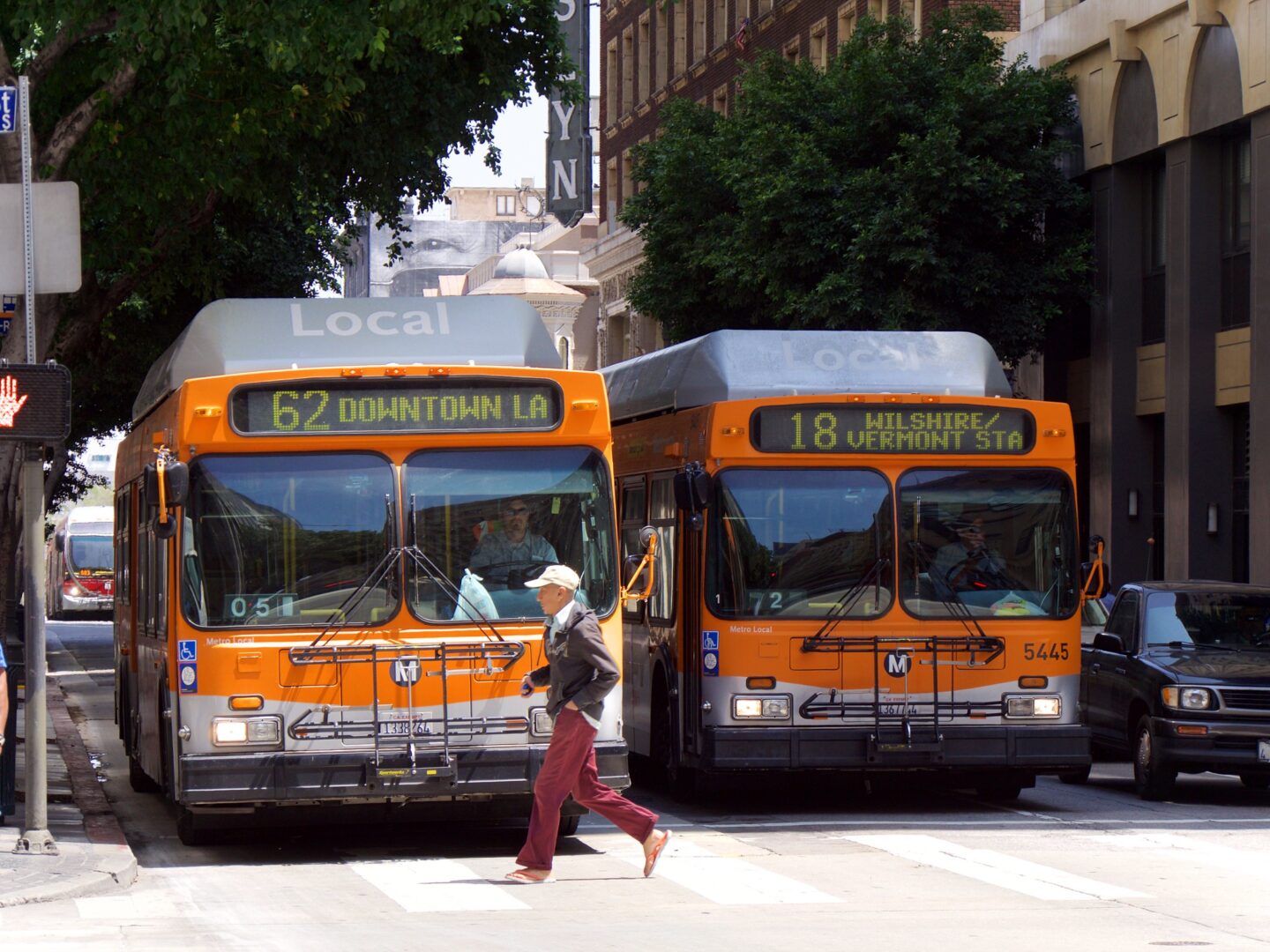 View Winners →
View Winners → 
With bus operators leaving Metro at higher rates than they’re being hired, the transit agency will temporarily reduce bus service beginning Feb. 20 to avoid more unexpected cancellations.
The Metro Board of Directors voted last Thursday to reduce service due to a bus operator shortage. Between Dec. 13 and Jan. 12, several bus lines had 20% or more of their trips cancelled due to the shortage, including the 754, 207, 206, 204, 111, 150, 210, 108, 240, 40, 53, 117, 115 and 81, according to a staff presentation given to the board.
Metro officials said the cancellations disproportionately impact “equity focused communities,” particularly in South Los Angeles.
Metro is working to “reduce service strategically throughout the network with (an) equity lens” using its NextGen Bus Plan as a framework, and working to have no change to the NextGen route network or operating days and times, they said.
The NextGen Bus Plan is Metro’s re-imagined bus system that was implemented last year. The goals of the plan were to double the number of frequent Metro bus lines, provide more than 80% of bus riders with 10 minutes or better frequency, improve service and ensure a quarter-mile or less walk to a bus stop for 99% of riders.
As Metro aims to reduce cancellations during the operator shortage, service will temporarily be reduced based on a line’s tier within the NextGen Bus Plan. The first tier, which typically has service every 5-10 minutes on weekdays and 7.5-15 minutes on weekends, may be temporarily reduced to 5-15 minutes on weekdays and 7.5-20 minutes on weekends. Of the lines with high cancellations, 753, 207, 204, 111, 210, 108, 240, 40, and 53 are in the first tier.
Beginning Feb. 20, bus service will be reduced by 800,000 “revenue service hours” or the time per year that a vehicle is available for service. Metro aims to begin service restoration in June 2022 at the earliest.
Metro said the reduction of operators has occurred due to a “perfect storm” that includes the national labor shortage, attrition greater than hiring and employees contracting COVID-19.
Metro bus operators began to leave the agency at higher rates than they were being hired in July 2021. Since that time, 356 bus operators have left the agency and only 207 were hired. In December, 11 were hired and 32 left.
According to Metro, reasons for people leaving include retirement, personal reasons, misconduct, new job acceptance and unsatisfactory performance.
The agency has about 3,119 bus operators, and needs to add an additional 448. It’s also down 28 rail operators, with only 298 currently working.
The bus operator shortage has increased bus service cancellations to about 10%-15%, up from the pre-pandemic cancellation average of about 1%-2%, Metro reported.
To hire additional bus operators, Metro is considering increasing their pay from $17.75 to $19.12 an hour as a six month pilot. It will also set up career kiosks at Rosa Parks/Willowbrook, East L.A. and Wilshire/Vermont stations in April.
In order for full service to be restored, Metro said it will need to have no more than 30 new COVID-19 cases per month among operators, have at least 3,677 bus operators and 326 rail operators, and reduce systemwide bus service cancellations to 2%, down from the current 10%-15%.
The agency will also have to reduce its “mandatory call back” to 200 per week, down from the current average of 800. The call backs are a process in which Metro orders staff to work on their days off, which has been occurring during the operator shortage.









































































































